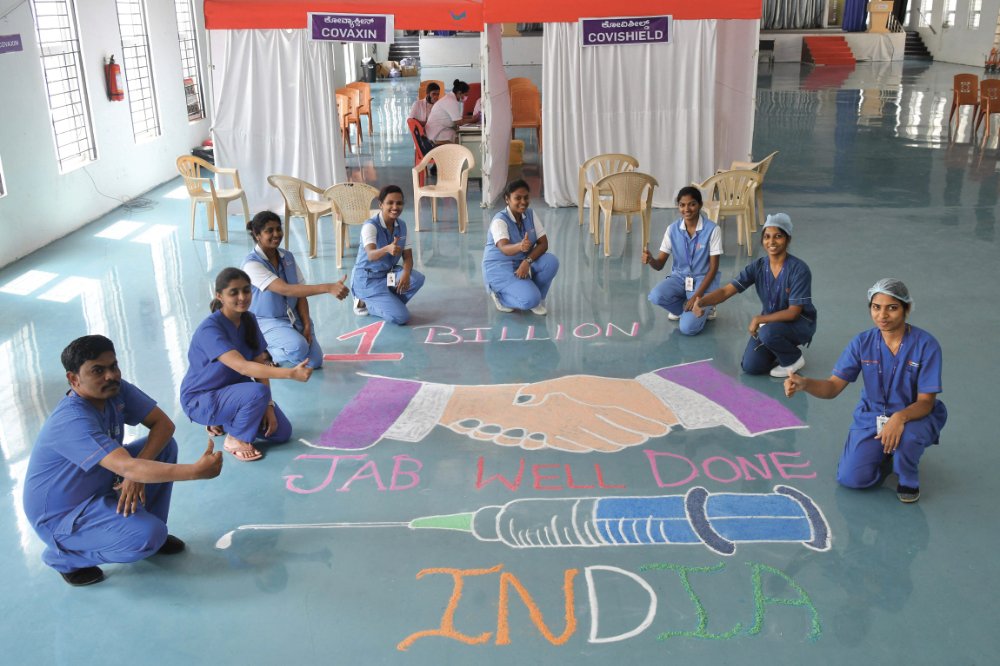NEW DELHI: India on Thursday hailed administering 1 billion coronavirus disease (COVID-19) vaccine doses as a milestone in its fight against the Delta variant of the virus that caused a deadly surge earlier this year.
The country started its immunization drive in January with two Indian-made vaccines — Covishield, the Oxford-AstraZeneca vaccine manufactured by the Serum Institute of India, and locally developed Covaxin produced by the Hyderabad-based Bharat Biotech — and plans to fully vaccinate 944 million of its adult population by the year’s end.
COVID-19 cases have recently fallen sharply in India since a devastating second wave of infections between March and May claimed the lives of more than 450,000 people, when the highly transmissible Delta variant, first detected in India a year ago, was infecting hundreds of thousands daily.
While only 30 percent have so far been fully vaccinated with two vaccine doses, the 1 billion mark was welcomed by the government as a “triumph.”
In a tweet on Thursday, as he marked the occasion with a visit to a government hospital in New Delhi, Prime Minister Narendra Modi said: “India scripts history. We are witnessing the triumph of Indian science, enterprise, and the collective spirit of 130 crore (1.3 billion) Indians. Congrats India on crossing 100 crore vaccinations.”
The PM also expressed his “gratitude to our doctors, nurses, and all those who worked to achieve this feat.”
Dr. Vinod Kumar Paul, the man in charge of India’s vaccination drive, described the 1 billion jabs mark as “an achievement” and highlighted the consistency in the vaccination drive. “It’s remarkable to reach the 1 billion dose mark for any nation, an achievement in just over nine months since the vaccination program started in India,” he said in a tweet.
To mark the achievement, the government was holding a series of cultural events throughout the country.
However, some health experts warned that only fully vaccinated people were protected from COVID-19.
Prof. Rama Baru, from Jawaharlal Nehru University’s Center of Social Medicine and Community in New Delhi, told Arab News: “The completion of two doses for protection from the virus has not yet been achieved. And coverage of the second dose is very poor in relatively poor states like Bihar and Uttar Pradesh.
“If you look at the age-related data, we still have 18-plus population in several rural areas like Uttar and Bihar who have not got the first shot yet.
“Besides the vaccination drive the focus should also have been on the drastic improvement of the public health infrastructure. After the second wave you would have expected the government to enhance its investment in the public health service, but in fact that has not happened,” she said.




